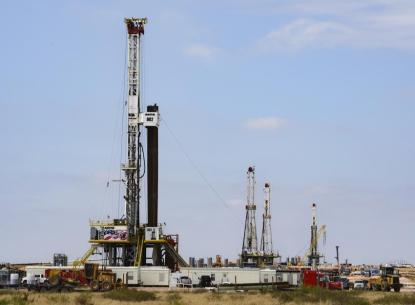
- -
- 0 seconds ago
Promoting Sustainability in Oil and Gas Markets
Promoting sustainability in oil and gas markets is essential for balancing the need for energy production with the goal of minimizing environmental impact. As the world shifts toward more sustainable practices, the oil and gas industry must innovate to address both global energy demands and the growing need for climate action. Below are some key strategies for promoting sustainability in oil and gas markets:
Investing in Cleaner Technologies
TCarbon Capture and Storage (CCS): Implementing and scaling CCS technologies can capture CO2 emissions from oil and gas facilities and prevent them from entering the atmosphere. This is vital for reducing the sector's overall carbon footprint.
Low-Emission Technologies: Oil and gas companies can invest in technologies that reduce emissions, such as electric-powered drilling rigs, renewable-powered offshore platforms, and cleaner fracking methods.
Benefits: These technologies reduce harmful emissions and can help meet global climate goals while enabling continued energy production.
Implementing Circular Economy Principles
Waste Reduction and Recycling: The oil and gas industry generates significant waste, such as drilling fluids, chemicals, and packaging. Adopting circular economy practices—such as reusing and recycling materials, reducing waste, and designing for longer product life cycles—can minimize environmental impact.
Reusing Infrastructure: Companies can explore repurposing decommissioned infrastructure, such as oil platforms, for other uses like offshore wind farms or aquaculture.
Benefits: Circular economy practices reduce environmental degradation, cut costs, and make operations more efficient by minimizing waste.
Promoting Sustainable Sourcing and Responsible Production
Ethical Supply Chains: Companies should prioritize responsible sourcing of materials and adopt best practices for extraction that minimize environmental harm. This includes using environmentally friendly technologies, reducing flaring, and promoting transparency in supply chain management.
Sustainable Drilling Practices: By improving drilling techniques (such as directional and horizontal drilling), companies can reduce environmental damage, such as land disturbance, water contamination, and habitat destruction.
Benefits: Sustainable sourcing and responsible production reduce the environmental footprint and ensure that resources are available for future generations.
Enhancing Energy Efficiency
Operational Efficiency: Oil and gas companies can improve energy efficiency across their operations by upgrading equipment, optimizing production processes, and reducing energy consumption.
Carbon-Reducing Innovations: The adoption of advanced monitoring and control systems, such as smart grids, sensors, and automation, can optimize energy use and minimize waste.
Benefits: Increased energy efficiency reduces operational costs, lowers emissions, and helps companies become more competitive in a market that increasingly values sustainability.
Transparency and Reporting
Sustainability Reporting: Companies should adhere to global sustainability frameworks (such as the Global Reporting Initiative (GRI) or Task Force on Climate-related Financial Disclosures (TCFD)) to report their environmental, social, and governance (ESG) impacts. Transparency in emissions, water use, and land impact helps hold the industry accountable.
Public Engagement: Companies should engage with stakeholders, including local communities, investors, and environmental groups, to discuss their sustainability initiativesand challenges. Open dialogue fosters trust and collaboration.
Benefits: Transparent reporting builds trust with stakeholders, attracts socially conscious investors, and strengthens a company’s long-term sustainability strategy.
Investing in Carbon Offsets
Carbon Offset Programs: Oil and gas companies can invest in carbon offset projects, such as reforestation or renewable energy projects, to offset their emissions. This provides a way for companies to balance out the emissions they are unable to eliminate.
Sustainability Partnerships: Collaborating with NGOs, governments, and other industries to fund large-scale carbon offset projects helps companies meet climate goals while contributing to the global transition to net-zero.
Benefits: Carbon offset programs provide an immediate way to mitigate emissions and demonstrate corporate responsibility in addressing climate change.
Join us as we delve into the imperative of Promoting Sustainability in Oil and Gas Markets, exploring the strategies and initiatives that empower traders and investors to drive positive environmental, social, and economic outcomes in the global Oil and Gas markets.



